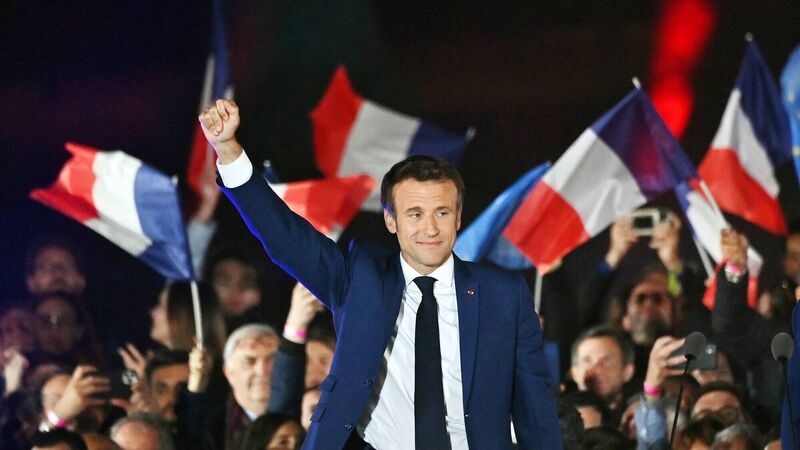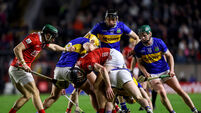Emmanuel Macron retains French presidency with decisive victory over Le Pen

In his victory speech at the Eiffel Tower, Mr Macron said: 'I’m not the candidate of one camp anymore, but the president of all of us. Picture: Aurelien Meunier/Getty Images
French President Emmanuel Macron has comfortably won re-election in the presidential run-off, according to exit polls, offering French voters and the European Union the reassurance of leadership stability as the continent grapples with Russia’s invasion of Ukraine.
The first projections showed Macron securing around 57-58% of the vote. Such estimates are normally accurate but may be fine-tuned as official results come in from around the country. The final result is expected later tonight.











